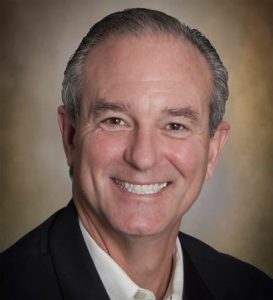
This column has featured several articles and interviews on why and how B2B CMOs need to “step up their game” in a wide range of areas, including better aligning sales and marketing, learning to leverage change for growth, and earning a seat at the business strategy table.
These have been offered to help address a problem that’s been growing for some time: namely, that many CEOs simply don’t believe their marketers are concentrating on, or able to deliver, bottom line business results, particularly in the B2B realm. The discussion around this in marketing circles lead toward the need to acquire new technical skills or shift one’s marketing mindset away from tactics into larger strategies.
“It’s comical to see how much ‘marketing malpractice’ is out there.”
And while those are certainly valid concerns which need to be addressed, a recent conversation raised an interesting, and possibly more fundamental, issue: do B2B marketers lack the range of business experiences, and the overall business acumen, required to succeed today?
Paul Hillen, Vice President, Global Marketing and CMO of Cargill, the $130 billion food, agricultural, risk management, and industrial products company, thinks so, and he characterizes the impact of the deficit this way, “It’s comical to see how much ‘marketing malpractice’ is out there.”
Comical, perhaps – but he wasn’t laughing. Hillen sees a serious credibility and capability deficit that’s undermining the reputation and perceived value of marketing as a business discipline, and undercutting marketers’ ability to adequately contribute to their B2B organizations’ growth and success. We asked him to explain his view of the problem, one he considers so serious that he’s engaged in several efforts, both professionally and academically, to provide a solution.
The Problem
 Paul Hillen: One of the fundamental issues that a lot marketers have, especially in B2B, is that they can’t link their activities to the P&L (profit and loss). That’s one of the reasons I was asked to take on this role. I have both a marketing background and have been a business unit leader and understand a P&L and how our businesses make money. The idea was to put somebody in the role, who’d come to work every day thinking, “How do we improve the growth and the profitability of the company?” not, “How do I run a marketing function?”
Paul Hillen: One of the fundamental issues that a lot marketers have, especially in B2B, is that they can’t link their activities to the P&L (profit and loss). That’s one of the reasons I was asked to take on this role. I have both a marketing background and have been a business unit leader and understand a P&L and how our businesses make money. The idea was to put somebody in the role, who’d come to work every day thinking, “How do we improve the growth and the profitability of the company?” not, “How do I run a marketing function?”
Brandingmag: And was there a recognition by leadership that many marketers did not have that orientation?
“The real job is to fundamentally identify where the money is in the market place.”
PH: Well, the average tenure of a CMO is only three and a half years – and I think that has a lot to do with the fact that they’re not able to correlate their activity to the business results, to their ability to drive profitable growth.
Marketers, especially in B2B, have to move past “I’m here to do sales support, marketing communication, and trade shows.” The real job is to fundamentally identify where the money is in the market place, where the opportunities are, and then build a winning value proposition for your business, whether it’s a product line or your total company. And in many B2B companies, marketers are not even charged with that responsibility. Often they are relegated to and accept the sales support and marketing communications role as their primary purpose.
One of the other big issues is a lot of B2B companies don’t put the right people in these roles. They tend to take people who are simply available or people who are communications majors, but not classically trained in marketing. This seems to be unique to the marketing function. You wouldn’t say, “This person is available, so let’s let them be an engineer or an accountant or a food scientist.” But it seems to be perfectly acceptable in some companies to do that for marketing. To build the credibility of the marketing discipline, you can’t throw just anybody in there who has not been educated and trained in the technical mastery of marketing.”
The Solution
Hillen, however, isn’t on a rant so much as he’s on a mission. In fact, he is among what we’re seeing as a growing vanguard of top B2B marketers who are working to create the education, conditions, and opportunities for marketers to develop into essential business leaders.
Bm: Can you describe some of the things you’re doing to address what one might call a “professionalism gap” in marketing?
PM: I’m on two university boards. I’m on the Institute for Research and Marketing with the Carlson Business School at the University of Minnesota, and I’m also on the steering committee for the Kilts Marketing Center at Chicago Booth [University of Chicago].
“If you don’t like math you’re going to be a failed marketer.”
Booth, for instance, has a great brand from a financial perspective. It’s seen as a place that a lot of CFOs come out of with an exceptionally strong financial background, and Booth is trying to leverage that for marketers. I guest lecture at multiple universities and I always remind marketing students, “If you don’t like math – and you don’t have to love it, you don’t need a PhD in math – but if you don’t like math you’re going to be a failed marketer.”
There are too many people who say, “Well, I wasn’t really very good at math and I didn’t like math, so I’m going into marketing. I’m more of a creative thinker.” What I’m trying to do is convince people that marketing must be a technical mastery, a learned and trained discipline. It’s no different than being an engineer or a food scientist or an accountant.
That’s a lot of what these schools I’m working with are doing, instilling that technical mastery. Booth, for instance, is positioned as the leader in fact-based marketing because, obviously, that’s not just the future – it’s the biggest immediate need as we sit here today in the world of big data and artificial intelligence. I’m also involved with the ANA’s initiative to improve the understanding of the role and training of marketers in organizations. It is a new initiative, but you’ll hear more in the future.
Bm: We understand that you’ve brought that passion for professionalism and on-going education to your day job too?
PM: Yes. At Cargill, we’ve created a marketing academy. It’s about nine years old now, and we just had another global group in over the past few days – I taught a few of the modules, which helps me stay sharp on the tools and get to know the marketing organization.
Bm: So is your academy just about training new skills or is it also about shifting peoples mindsets and self-expectations?
PM: It is about both. Of course we want people to gain the skills needed to be strategic thought leaders, to develop marketing opportunities and build plans to capture them. But it’s also about instilling in them that they need to use these skills to influence their businesses’ strategic direction and implementation to grow the profitability.
The Next Step for Marketers
With our readers firmly in mind, we also wanted to ask Paul for his advice to an aspiring B2B CMO – or to a current senior marketer looking to improve their position and performance.
Bm: What are the top two or three pieces of advice you would give to a rising marketer?
PM: The first thing you have to do is be a business leader. You can’t be seen as just a marketer, you have to be accepted as an executive, a true business leader. That means that as an up-and-coming CMO, you’ve got to get other experiences. Just staying in a marketing track is probably not going to get you the experience you need. So you’ve got to manage your career and be extremely proactive. I won’t say you should demand it, but you need to influence your managers to get you those different types of business experiences. Ask for assignments in other disciplines that are seen as critical to your company — they can be short term or permanent assignments, depending on the importance of the function to your company.
“The first thing you have to do is be a business leader.”
The second is that you’re only seen as a true business leader if you’ve proven that you can help your firm make money. You have to have that P&L experience. Those two things go hand-in-hand.
And the third thing I would say to aspiring CMOs is, “Own the customer.” I don’t mean own it from all the decision rights and those kinds of things in the company. What I’m saying is that you better be the expert on the customer. You need to deeply understand their buying behaviors, strategic actions, and their poor or unmet needs. The customer is the most critical audience for your value proposition. If you know the customer segments well, and develop those winning value propositions, then you will show the clear link to profitable growth. You can then be the person who is persuading and influencing your company on what that value proposition should look like, so that your firm is preferred over anybody else.
I know this all sounds like common sense. But common sense isn’t always common practice. In many B2B companies, I don’t see marketers playing these roles. Again, I see more of them in sales support or marketing communications roles.
Are you part of the movement to make marketers real business leaders?
The upshot of Hillen’s comments is two-fold. First, that B2B organizations must demand more of their marketers to have more P&L expertise, more financial, mathematical, and general business management capability — to achieve profitable growth, and overall success. And secondly, that individual marketers who fail to “do the math,” educating, equipping, and orienting themselves to be hardcore business leaders, will have a hard time finding a professional place in marketing’s evermore demanding future.